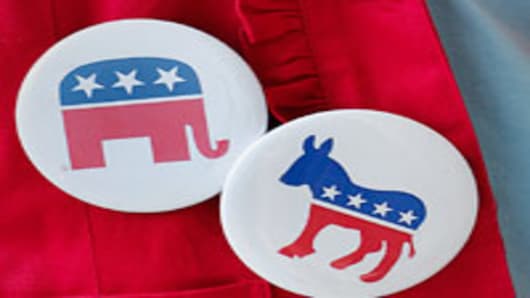Veteran political handicappers are now openly using the phrase “tidal wave” to describe the Nov. 2 House and Senate elections.
With the economymired in a 1.5-percent-GDP growth path and the public convinced that government stimulus hasn’t worked, a potentially historic landslide looms.
There’s a high probability that Republicans will re-capture the House. The magic number is 39, and some handicappers like Charlie Cook think the GOP could pick up far more than that—perhaps rivaling the 54 seats that Newt Gingrich and the Republicans captured in 1994.
Suddenly, the Senate is in play as well. The magic number there is 10, which seems difficult to attain because the Democrats now have a chance to win the Joe Biden seat in Delaware, which looked lost before the stunning primary win by the Tea Party's Christine O’Donnell.
But other Senate races, thought to be beyond the reach of Republicans, now look competitive. Cook and other handicappers have shifted Connecticut from “leaning Democrat” to “tossup” as wrestling executive Linda McMahon (R) moves within a few points of Attorney General Richard Blumenthal (D).
Among the other races to watch, Wisconsin Democrat Russ Feingold suddenly looks vulnerable.
The voter anger is palpable. If a deeply flawed lightweight like O’Donnell can defeat a personable, well-funded establishment candidate like Mike Castle, there’s a mighty wind howling. Maybe that wind won’t help the Republicans everywhere, but it’s toxic for the Democrats.
The bottom line is clear: This election is likely to radically alter the dynamics in Washington and on Wall Street. The activist Obama agenda will grind to a halt in 2011-2012, replaced by gridlock—and gridlock almost always is a positive for financial markets.


